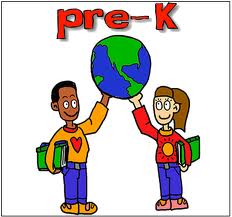The Observer has the best reporting on the latest pre-k bills that have been filed in the Lege.
There’s widespread support around the Capitol for more state spending on pre-kindergarten programs, and much less agreement about how to do it.
State Reps. Eric Johnson (D-Dallas) and Marsha Farney (R-Georgetown) have proposed a $300-million-a-year plan to fund full-day pre-K for some children in districts that agree to meet new quality standards. Meanwhile, state Sen. Judith Zaffirini (D-Laredo) has introduced a more ambitious plan: universal, full-day pre-K for all 4-year-olds in the state.
On the campaign trail last year, Gov. Greg Abbott also proposed more pre-K spending, but more cautiously. Rather than a blanket pre-K expansion, Abbott suggested rewarding districts with $1,500 per student if they meet new standards for program quality.
That’s the plan outlined in House Bill 4, filed [Thursday] by state Rep. Dan Huberty (R-Houston). The bill creates a framework for defining the “high quality prekindergarten programs” eligible for extra state funding, but remains vague on how much each school district would get and how their programs would be evaluated. Under HB 4, those decisions would all be left up to the education commissioner.
[…]
David Anthony, CEO of Raise Your Hand Texas and a former superintendent of Cypress-Fairbanks ISD, says HB 4 includes some important elements—encouraging districts to use the state pre-K standards, and rewarding districts for using qualified teachers—but the bill is a missed opportunity if it doesn’t fund full-day learning.
“Our research shows students achieve the greatest gains when enrolled in high-quality, full-day pre-K,” Anthony says, with an emphasis on “full-day.” “We have seen first-hand in the research and talking with teachers that they can accomplish so much more in a full-day program than with the half-day.”
See here for more on Raise Your Hand Texas’s research, and here for more on the Johnson/Farney bill. The Zaffirini bill is basically what Wendy Davis proposed, so you can guess what its likely outcome will be. The main problem with Abbott’s approach of course is that the $100 million appropriated in Rep. Huberty’s bill is still less than what was cut in 2011. The Chron story doesn’t mention any of this, though it does give a nice report on that public announcement event Abbott held, since that’s what really matters.
There are more reasons to prefer the full-day pre-k options that Johnson/Farney and Zaffirini are proposing:
“Right now it looks like the governor’s proposal [as written in HB 4] is basically recreating a similar grant program,” [Center for Public Policy Priorities analyst Chandra Villanueva] says. “This program just isn’t going far enough and meeting the needs that we really have.”
Villanueva, like many other early education advocates, says the Legislature should fund any pre-K expansion through the same funding formulas it uses to pay for K-12 education. Grant programs like the one cut in 2011, or the one proposed under HB 4, are much more susceptible to cuts from one session to the next.
Funding pre-K through the formulas, she says, would also help ensure students get more equal funding. HB 4, on the other hand, could reward wealthy districts that already have the money to meet new requirements for, say, class size or teacher qualifications.
“The governor’s bill that’s outside the formulas, it’s really increasing inequity in the system,” Villanueva says. “I think we need a systemic approach to dealing with pre-K, and increase the equity in the system.”
You know what that sounds like to me? A future school finance lawsuit. Good to know some things never change, isn’t it?

